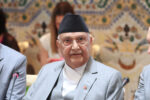People aren’t born smart. They become smart. And to become smart you need a well-defined set of skills. Here are some tips and resources for acquiring those skills.
Memory
If you can’t remember what you’re trying to learn, you’re not really learning. The secret to remembering is this: memory comes naturally once you understand what you’re trying to learn and organize it effectively in your mind.
If you want to amaze your friends with remembering faces, names, and numbers, look to the grand-daddy of memory training, Harry Lorayne. His How to Develop a Super-Power Memory is a classic. The problem with Harry Lorayne type memory courses is that they focus on mental tricks and gimmicks to memorize trivial stuff that really doesn’t make for a deep understanding of important subjects.
Reading
Good scholars need to be good readers. Psychologists have found that many people who take speed reading courses increase their reading speed for a short time but then fall right back to the plodding pace where they started. Some people just seem to have a gift for reading quickly, being able to grasp entire sentences or even paragraphs at one time, instantly extracting their meaning. Howard Berg falls in this category. He is regarded as the world’s fastest reader.But the bottom line in reading is always comprehension.
Writing
Writing is an essential part of scholarship. Some great scholars have been terrible writers—the strength of their ideas carried them to the top even though their writing style was abysmal. But these are the exceptions. Clarity and precision of expression can only help you as a scholar. Every writer needs to have read Strunk and White’s The Elements of Style. Writing isn’t just about filling up a pages with text. It’s also about persuasion. Scholars are not just in the business of thinking up great ideas. They also have to sell them. Indeed, you are selling yourself and your ideas when you apply to college, graduate school, your first teaching position, and especially when you’re trying to get tenure. For this reason critical thinking and rhetorical skills are indispensable to the scholar’s craft. A great book on rhetoric is Edward Corbett’s Classical Rhetoric for the Modern Student.
Speaking
Among the worst fears that people have is public speaking. Yet as a scholar, you will be called on to discuss your ideas. Public speaking is therefore part of the scholarly life. Dale Carnegie’s How to Develop Self-Confidence And Influence People By Public Speaking is a classic. If you want actual practice in public speaking, Toastmasters International operates thousands of clubs to give members experience in the art of listening and speaking.
Numeracy
Scholars need facility with numbers. Some scholars such as mathematicians, physicists, and engineers tend to score high on the math portions of standardized tests and have fewer problems dealing with numbers. Other scholars, often on the humanities side, prefer to have as little to do with numbers as possible. But numbers are a part of life, so we better learn to live with them. Numbers are often abused. Joseph Stalin once remarked that paper doesn’t care what’s written on it. Likewise, numbers don’t care what you do with them. Consequently, they are easily abused. John Paulos’ Innumeracy: Mathematical Illiteracy and Its Consequences, Darrell Huff’s How to Lie with Statistics, and Peter Olofsson’s Probabilities: The Numbers That Rule our Lives are very useful in keeping numbers from being used to deceive us.
Empathy
Empathy is about connecting with people. It is about understanding and tracking other people’s emotions. Aristotle stressed the desire of people to know. But people are not just about knowing. They are also about feeling. We are not just cognitive animals but also social animals, and feelings drive most of our social interactions. That’s why many scholars are regarded as nerds or geeks—they are seen as reducing everything to knowledge, to pure intellectualism, forgetting about the feeling element in people. The classic study on empathy was by the towering British economist Adam Smith. Before his great work on economics, The Wealth of Nations, he wrote The Theory of Moral Sentiments. Both books bear careful study to this day.
Time Management
The word “scholar” comes from the Greek word for leisure. Being a scholar means having the leisure time to engage in intellectual pursuits rather than in other forms of labor. It follows that, as a scholar, time is your most valuable asset. How you make use of your time is therefore critical to your productivity as a scholar. In America we tend to waste an inordinate amount of time. The television is on in most homes six hours a day. We look for unproductive ways to fill the day. The best book for remorselessly cutting out the time-wasters from your life is the out-of-print How to Use Your Time to Get Things Done by Edwin Feldman, first published in 1968. At Super Scholar, we boil time management down to two principles: (1) Do the hard thing first. (2) Make it a habit to fill up the small empty moments with something productive.
(Agencies)









Comment